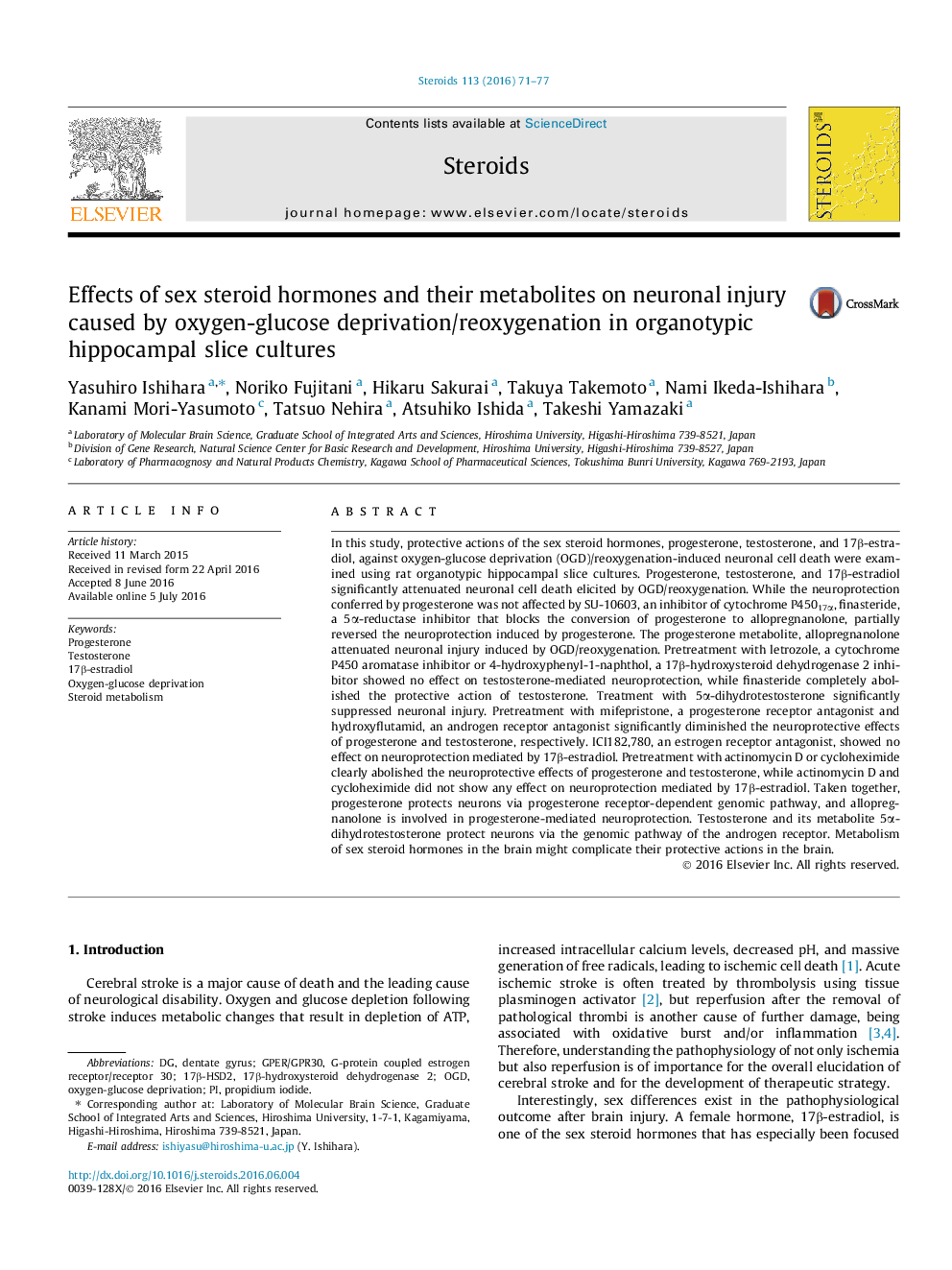| کد مقاله | کد نشریه | سال انتشار | مقاله انگلیسی | نسخه تمام متن |
|---|---|---|---|---|
| 2027674 | 1542695 | 2016 | 7 صفحه PDF | دانلود رایگان |

• Progesterone suppresses neuronal injury via progesterone receptor with genomic action.
• Allopregnanolone converted from progesterone shows neuroprotective effect.
• Testosterone protects neurons via its genomic action mediated by androgen receptor.
• Dihydrotestosterone converted from testosterone exhibits neuroprotective action.
• Estradiol neuroprotection is independent of estrogen receptors and genomic action.
In this study, protective actions of the sex steroid hormones, progesterone, testosterone, and 17β-estradiol, against oxygen-glucose deprivation (OGD)/reoxygenation-induced neuronal cell death were examined using rat organotypic hippocampal slice cultures. Progesterone, testosterone, and 17β-estradiol significantly attenuated neuronal cell death elicited by OGD/reoxygenation. While the neuroprotection conferred by progesterone was not affected by SU-10603, an inhibitor of cytochrome P45017α, finasteride, a 5α-reductase inhibitor that blocks the conversion of progesterone to allopregnanolone, partially reversed the neuroprotection induced by progesterone. The progesterone metabolite, allopregnanolone attenuated neuronal injury induced by OGD/reoxygenation. Pretreatment with letrozole, a cytochrome P450 aromatase inhibitor or 4-hydroxyphenyl-1-naphthol, a 17β-hydroxysteroid dehydrogenase 2 inhibitor showed no effect on testosterone-mediated neuroprotection, while finasteride completely abolished the protective action of testosterone. Treatment with 5α-dihydrotestosterone significantly suppressed neuronal injury. Pretreatment with mifepristone, a progesterone receptor antagonist and hydroxyflutamid, an androgen receptor antagonist significantly diminished the neuroprotective effects of progesterone and testosterone, respectively. ICI182,780, an estrogen receptor antagonist, showed no effect on neuroprotection mediated by 17β-estradiol. Pretreatment with actinomycin D or cycloheximide clearly abolished the neuroprotective effects of progesterone and testosterone, while actinomycin D and cycloheximide did not show any effect on neuroprotection mediated by 17β-estradiol. Taken together, progesterone protects neurons via progesterone receptor-dependent genomic pathway, and allopregnanolone is involved in progesterone-mediated neuroprotection. Testosterone and its metabolite 5α-dihydrotestosterone protect neurons via the genomic pathway of the androgen receptor. Metabolism of sex steroid hormones in the brain might complicate their protective actions in the brain.
Journal: Steroids - Volume 113, September 2016, Pages 71–77